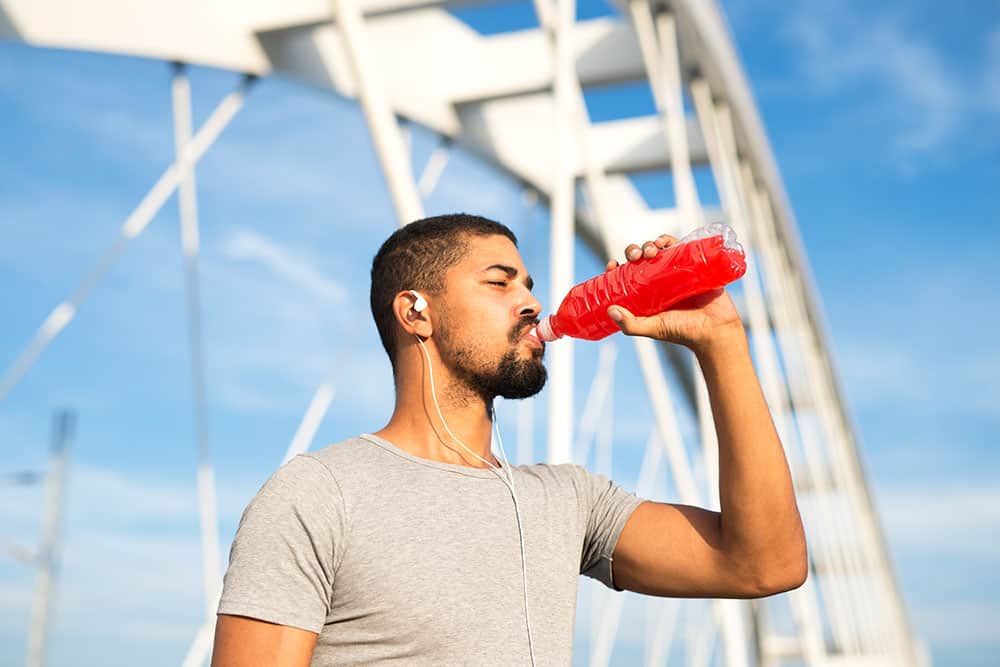Energy Drinks and Early Recovery
The National Center for Complementary and Integrative Health recently published a report stating that next to multivitamins, energy drinks are the most widely consumed dietary supplement among teenagers and young adults throughout the country. Caffeine levels vary depending on the size and brand of the energy drink, but energy drinks often include between 70 to 300 mg of caffeine – comparatively, an 8 oz cup of coffee contains roughly 100 mg of caffeine. The same study suggests that there are many safety concerns being raised by the consumption of potent energy drinks. For example, the Centers for Disease Control and Prevention report that drinkers between the ages of 15 and 23 who combine alcohol with energy drinks are up to four times more likely to engage in patterns of binge drinking. Between the years 2007 and 2011, the number of emergency room visits related to energy drink consumption more than doubled, and in 2011, 42 percent of all emergency room visits related to energy drinks involved combining heavily caffeinated beverages with drugs and alcohol. There is a growing body of scientific evidence and related research that shows the negative ways in which energy drinks can impact overall health. Despite extensive studies, energy drink consumption is especially high among men and women who are new to addiction recovery.
At Guardian Recovery Network, we believe in the benefits of quitting energy drinks all together. However, we also know that making any major changes within the first year of sobriety can be triggering. While we do not require our clients to give up caffeine altogether, we do encourage them to work towards total abstinence over time. Additionally, seeing as there are so many health-related risks involved in consuming energy drinks on a daily basis, we do encourage our clients to make the switch from over-caffeinated beverages to safe and (somewhat) healthy beverages like black coffee and black tea.
More on Energy Drinks
Unlike coffee, which is a staple of 12-step meetings like Alcoholics Anonymous, energy drink consumption has actually been linked to substance abuse and dependency. According to the National Institute on Drug Abuse, new research suggests that individuals who consume energy drinks are actually at a greater risk of developing an alcohol use disorder in the future. A comprehensive study was conducted by scientists from the University of Maryland, College Park. The study followed college students who were roughly 21 years of age, examining their past year use of energy drinks and following them over the course of the next three years in order to determine whether their use of energy drinks had decreased, increased or stayed the same. After five years, they were assessed for past-year substance use. The students who had increased their use of energy drinks showed higher rates of prescription stimulant misuse, cocaine use and alcohol use disorder. This is only one of many scientific research studies that points to the correlation between energy drink consumption and substance use.
If you have come to rely on energy drinks to get you through the day, quitting might be an ideal option – even if you are still in the first year of your recovery. However, it is recommended that men and women who are new to sobriety avoid making any major changes in their first year. Doing so might add unnecessary levels of stress which could potentially contribute to relapse. Take a look at our list of pros and cons, and remember to make the decision that will ultimately benefit you and your sobriety in the long-term.
Pros and Cons to Quitting Energy Drinks in Early Recovery
Pros to Quitting Energy Drinks
- Drinking excessive amounts of caffeine increases irritability and anxiety – The majority of men and women who are in early recovery struggle with some degree of anxiety disorder as it stands. Quitting energy drinks can help regulate your mood well alleviating some of the more serious symptoms associated with anxiety disorders.
- Energy drinks are extremely high in sugar, which is not only bad for your overall health but which can contribute to weight gain – Even sugar-free energy drinks have been linked to weight gain, according to an article published by The Anatolian Journal of Cardiology titled, “Energy drinks and obesity: Preliminary results from a preclinical study.”
- Energy drinks are known to screw with your sleep schedule – Most individuals who are new to addiction recovery deal with sleep-related issues as it is, seeing as insomnia is one of the main symptoms associated with Post-Acute Withdrawal Syndrome. Consuming one or more energy drinks on a daily basis has been shown to lead to disrupted sleep patterns, nightmares and an inability to wake up on time in the morning.
- When you quit energy drinks, your brain chemistry will regulate more quickly – Substance abuse negatively affects the chemistry of the brain, and caffeine has been shown to alter brain chemistry in a similar way to stimulant drugs like cocaine, methamphetamine and prescription stimulants. Individuals who can assume caffeinated beverages on a daily basis also experience withdrawal symptoms as soon as use is stopped completely. Tapering off of energy drinks and avoiding caffeine all together will prevent these withdrawal symptoms, which can include headaches, irritability and sleep disturbances.
Cons to Quitting Energy Drinks
- Making any major changes to your daily routine can be stress inducing and disruptive – It is recommended that those who are new to addiction recovery avoid making any major changes during their first year, which can include eliminating caffeine. For some, quitting energy drinks can actually serve as a relapse trigger – especially if they are prone to experiencing related withdrawal symptoms.
- The withdrawal symptoms associated with quitting energy drinks can closely resemble drug and alcohol withdrawal symptoms, which can be extremely triggering for some – It is recommended that individuals who consume a great deal of caffeine on a daily basis avoid quitting cold turkey, and instead taper off of caffeine slowly if they are attempting to quit. This will alleviate the more severe symptoms of withdrawal, including irritability and mood swings, severe and persistent headaches and excessive fatigue.
5 Tips to Effectively Quit
If you are looking to quit drinking energy drinks, we have compiled a list of five helpful tips that will help you effectively quit.
- Replace one or two of your daily energy drinks with a caffeinated beverage that has less severe health-related consequences, like coffee or tea – Many energy drinks are packed full of harsh chemicals – coffee and tea are naturally derived and only include one ingredient (so long as you don’t load them full of cream and sugar).
- Drink enough water – Energy drinks are actually diuretics, meaning that they dehydrate you. If you are cutting back on your intake make sure that you are drinking at least eight 8 oz. glasses of water on a daily basis.
- Find a healthy, low-calorie sparkling beverage that you enjoy drinking – Doing so will help you feel less deprived, and will help you effectively break your habit long-term. Many energy drink consumers find that replacing one of their daily energy drinks with flavorful sparkling water or a sparkling tea or kombucha does the trick – it is often more about enjoying a beverage than loading yourself full of caffeine.
- Every Monday, budget your caffeine intake by allowing yourself a small amount of money to be allotted to energy drinks for the remainder of the week – For example, give yourself a $10 budget, which could include a fancy coffee drink from your favorite local coffee shop and two energy drinks. Stick to your budget, while allowing yourself a little extra for energy drink replacements like sparkling water and kombucha.
- Don’t go at it alone – Find a sober friend who has also been looking to decrease his or her caffeine intake, and hold each other accountable. Having someone to encourage and support you makes the entire process easier.
Guardian IOP – Working Towards Total Abstinence
While we encourage our clients to work towards total abstinence, we understand that giving up energy drinks and other forms of caffeine can be difficult to do in early sobriety. For more information on quitting energy drinks or for more information on Guardian IOPs program of drug and alcohol addiction recovery, give us a call today at (888) 693-1894, we are available to help 24/7.

Reviewed for accuracy by:
Anna Marie Barrett LCSW, CYT
Anna earned her Masters of Social Work at Barry University in Miami, FL in 2017 and completed her internship in co-occurring disorders. Anna has a Bachelors of Art in Religious Studies from Naropa University and is a certified yoga and meditation instructor. Anna has received specialized training in somatic counseling with an emphasis on body-centered psychotherapy.





















